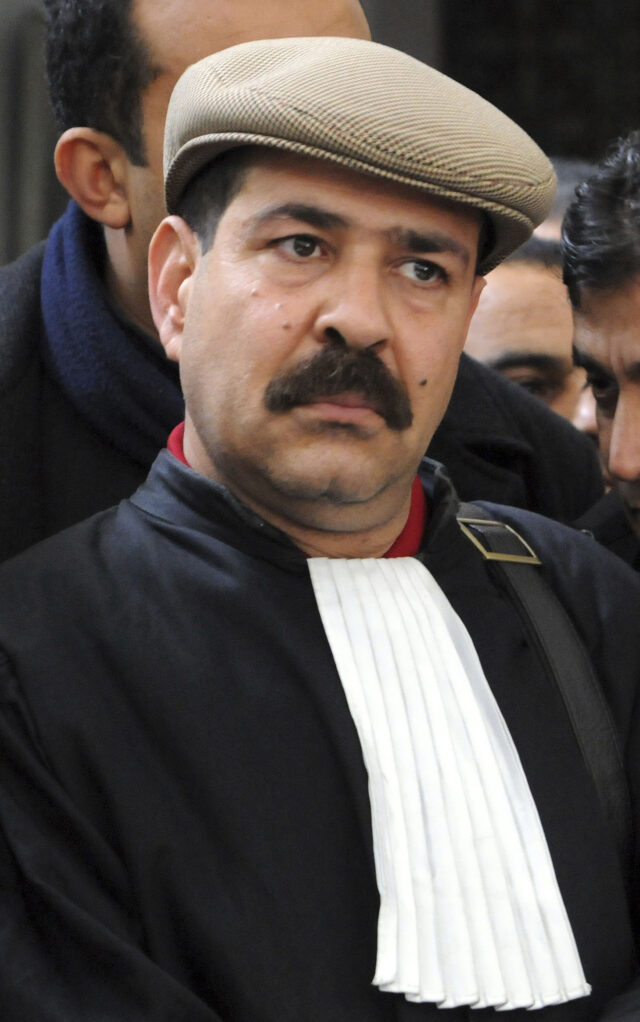A Court in Tunisia on Wednesday sentenced four individuals to death and two to life imprisonment for their involvement in the murder of prominent political Leftist leader and lawyer Chokri Belaïd in 2013.
A vocal critic of the then ruling Islamist Ennahda party, Belaïd, 48, was found shot dead in his car in the capital city of Tunis. The incident sparked widespread outrage in a country already dealing with the backdrop of the Arab Spring uprising in 2011, which saw the overthrow of longtime dictator Zine El Abidine Ben Ali. Belaïd’s killing, followed by the assassination of another opposition figure, Mohamed Brahmi, further heightened political tensions in the country.
Tunisia was the first country in which protests erupted after a fruit and vegetable vendor set fire to himself in response to the confiscation of his wares and alleged harassment. It was also the only nation that overthrew an authoritarian ruler during the 2011 Arab Spring and went on to build a democracy. In January 2011, Zine al-Abidine Ben Ali resigned as Tunisia’s president and fled to Saudi Arabia, after failing to quell weeks of mass protests. He had ruled for 23 years.
But the political influence of Ennahda –and democracy--was diminished in 2021 when President Kais Saied grabbed power by dismissing the prime minister and suspending parliament. he then went on to pass several laws by Presidential decree, Several opposition politicians and journalists who criticised him were detained or jailed.
In July 2022, he won a referendum which allowed him to introduce a new constitution. Although elections are slated for 2024, no dates have been announced as yet.
While death sentences are still announced in Tunisia, they are rarely carried out, often being commuted to life imprisonment. The court’s verdict in the Chokri Belaïd case marks a pivotal moment in Tunisia’s quest for justice and political stability.
Also See:
In a career spanning three decades and counting, Ramananda (Ram to his friends) has been the foreign editor of The Telegraph, Outlook Magazine and the New Indian Express. He helped set up rediff.com’s editorial operations in San Jose and New York, helmed sify.com, and was the founder editor of India.com.
His work has featured in national and international publications like the Al Jazeera Centre for Studies, Global Times and Ashahi Shimbun. But his one constant over all these years, he says, has been the attempt to understand rising India’s place in the world.
He can rustle up a mean salad, his oil-less pepper chicken is to die for, and all it takes is some beer and rhythm and blues to rock his soul.
Talk to him about foreign and strategic affairs, media, South Asia, China, and of course India.





